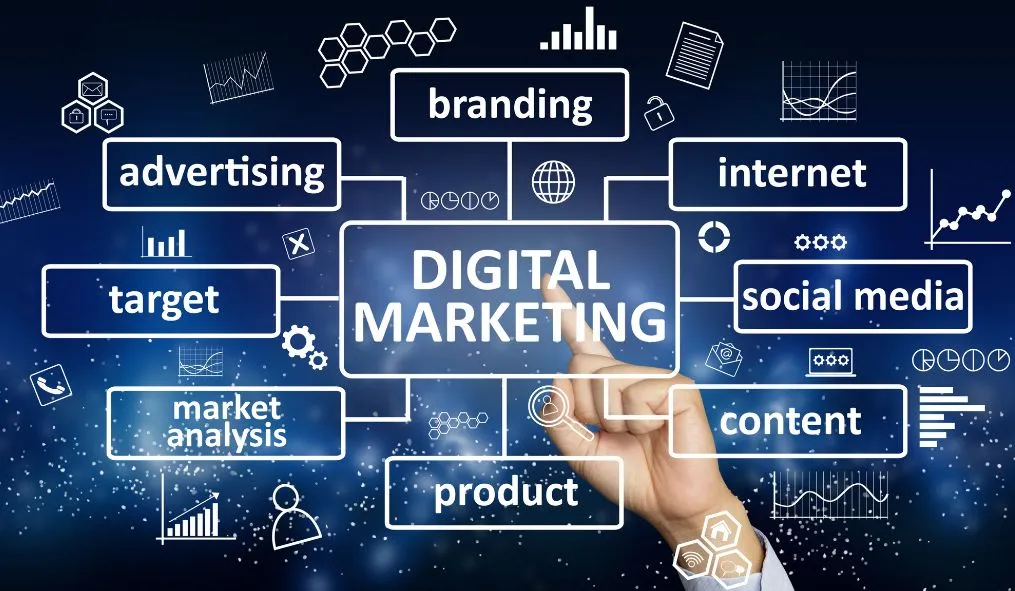Navigating the Digital Landscape : Key Digital Marketing Trends to Watch
In the fast-paced world of digital marketing, staying ahead of the curve is essential for businesses aiming to remain competitive and relevant. The digital landscape is continually evolving, and marketers must adapt to emerging trends to connect with their audiences effectively. In this article, we will explore some of the key digital marketing trends that are shaping the industry and driving the future of online marketing.
1. Voice Search Optimization
Voice search is no longer a futuristic concept; it’s a reality that’s changing the way people interact with search engines. With the rise of voice-activated devices like smartphones, smart speakers, and virtual assistants, optimizing content for voice search has become crucial. Marketers need to focus on conversational keywords, natural language, and providing concise, direct answers to user queries.
2. Video Marketing Dominance
Video content continues to be a dominant force in digital marketing. Platforms like YouTube, TikTok, and Instagram Stories have made video easily consumable and shareable. Live streaming, webinars, and short-form video content are all gaining traction. Video marketing not only engages audiences but also enhances brand storytelling and helps establish a more personal connection with customers.
3. Artificial Intelligence (AI) and Machine Learning
AI and machine learning are revolutionizing digital marketing. Marketers are using AI-powered tools to automate tasks, personalize content, and analyze vast amounts of data. Chatbots and virtual assistants are becoming more sophisticated, providing instant customer support and improving user experiences. AI also plays a significant role in predictive analytics and customer segmentation.
4. Personalization at Scale
Customers have come to expect personalized experiences when interacting with brands. Digital marketing trends now focus on hyper-personalization, tailoring content, product recommendations, and marketing messages to individual preferences. Data-driven insights and AI algorithms help businesses deliver personalized experiences that resonate with their target audience.
5. User-Generated Content (UGC)
User-generated content, such as reviews, testimonials, and social media posts, carries significant weight in the eyes of consumers. Brands are encouraging customers to create content related to their products or services. This not only builds trust but also provides authentic, relatable content that can be leveraged for marketing purposes.
6. Social Commerce
Social media platforms are increasingly blurring the lines between content and commerce. Many platforms now offer integrated shopping features, allowing users to purchase products directly from their social feeds. Businesses are leveraging social commerce to reach audiences where they spend their time online and drive conversions.
7. Sustainability and Social Responsibility
Consumers are increasingly conscious of environmental and social issues. Brands that align with sustainable practices and social responsibility initiatives are gaining favor among customers. Digital marketing strategies now include communicating a brand’s commitment to sustainability, ethical sourcing, and community engagement.
8. Interactive Content
Interactive content engages users and encourages active participation. Quizzes, polls, surveys, and interactive videos are gaining popularity. This type of content not only holds users’ attention but also provides valuable data for marketers to refine their strategies.
9. Privacy and Data Protection
As concerns about data privacy grow, digital marketing trends include a focus on transparency and data protection. Marketers must comply with stricter regulations, such as the General Data Protection Regulation (GDPR) and the California Consumer Privacy Act (CCPA), and prioritize user consent and data security.
10. Augmented Reality (AR) and Virtual Reality (VR)
AR and VR technologies are increasingly being used in digital marketing campaigns. These immersive experiences allow consumers to interact with products or services before making a purchase decision. AR filters on social media platforms and VR-powered virtual showrooms are examples of how businesses are using these technologies to engage audiences.
In the ever-evolving digital marketing landscape, staying informed about key trends is crucial for marketers and businesses alike. Embracing these trends can help drive engagement, improve user experiences, and enhance the effectiveness of digital marketing efforts. As technology continues to advance, marketers who adapt to these trends will be better positioned to connect with their target audience and achieve success in the digital age.

- Digital Marketing Dubai
- Affordable Digital Marketing Services in Dubai
- Best Digital Marketing Agencies in Dubai
- Best Digital Marketing Dubai
- Best Digital Marketing Dubai Reviews
- Digital Marketing Agency in Dubai
- Digital Marketing Companies in Dubai
- Digital Marketing Company in Dubai
- Digital Marketing Cost in Dubai
- Digital Marketing Packages in Dubai
- Digital Marketing Services in Dubai
- How Much Does A Digital Marketing Agency Cost In Dubai?
- Is Digital Marketing In Demand In Dubai?
- Top Dubai Digital Marketing Agencies
- Which Companies in Dubai Are Best For Digital Marketing?
- Which Company is Best For Digital Marketing in Dubai?
- Who Are the Big 6 Digital Marketing Agencies in Dubai?
- Digital Marketing in Dubai, UAE
- Digital Marketing in UAE
- Digital Marketing UAE
- Digital Marketing Abu Dhabi
- Digital Marketing Sharjah
